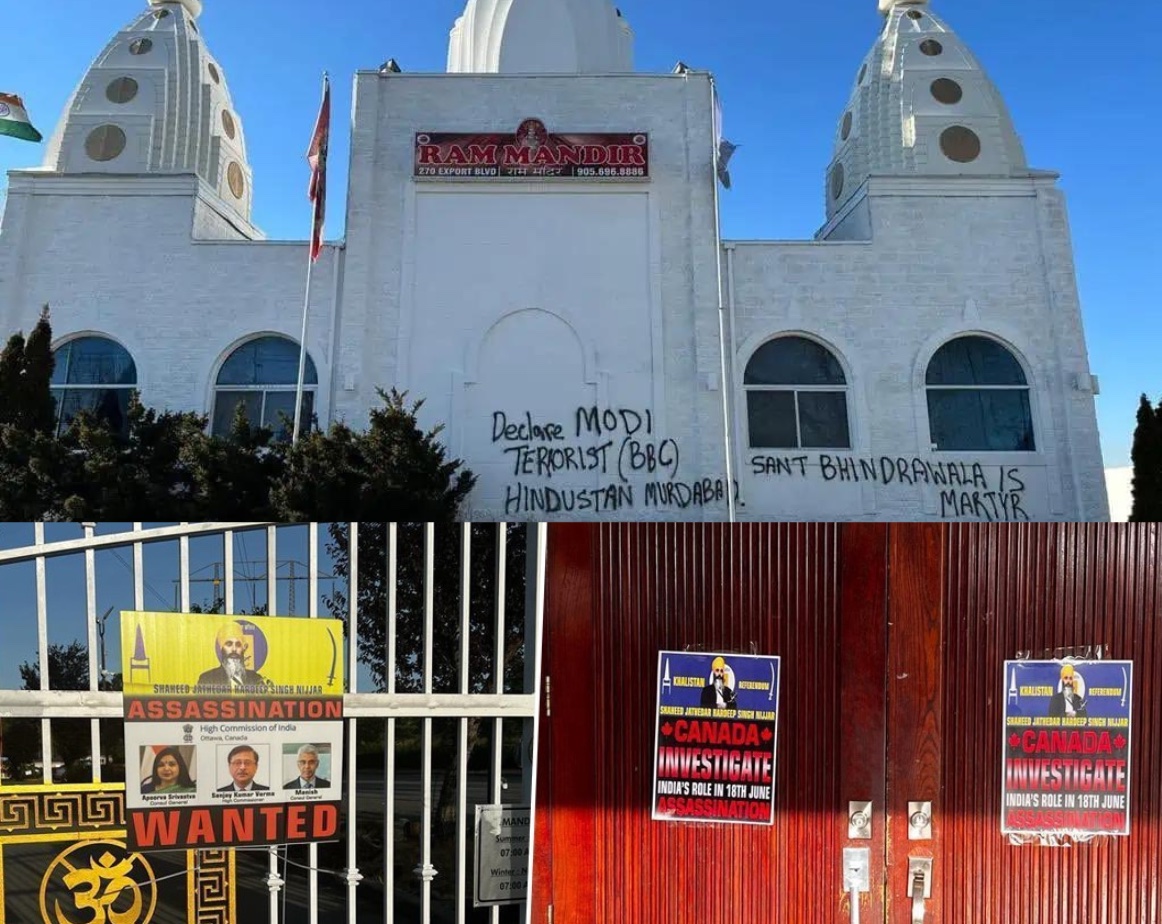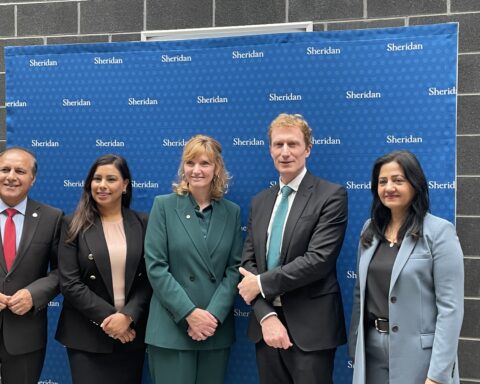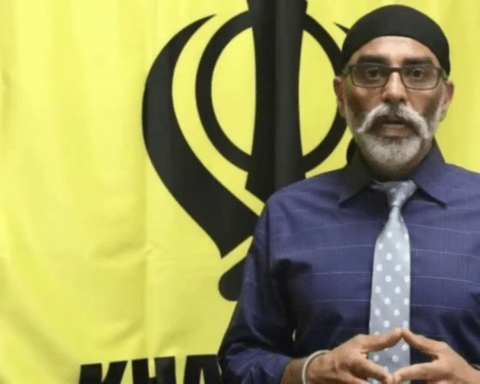“Staying in my home country feels safer than anywhere else in the world right now. Especially after India cancelled the visas for Canadians, and then the Israel-Hamas war,” says Shrishti Gupta, an Indian student who was to move to Vancouver this fall, but chose to stay back at least for this semester.
Speaking to NCM from Delhi, she is worried about high inflation, a looming recession and what she sees as a tough job market in Canada. Recent political developments between India and Canada have only pushed her to the limit.
Prime Minister Justin Trudeau’s charge last month that India was behind the killing of a Canadian citizen and a leader in the separatist Khalistan movement, Hardeep Singh Nijjar, on June 18, has rippled across various sections of the Indian diaspora in Canada. Niijar was gunned down outside Guru Nanak Gurdwara where he was president.
All of these political issues have heightened a sense of unrest between Hindus and Sikhs in Canada. This year, some Hindu temples across the country experienced a record number of acts of vandalism allegedly by supporters of Khalistan.
“They jumped over the fence in the middle of the night and pasted posters for the Khalistan referendum over the temple gates and walls,” says Vinay Sharma, secretary of Lakshmi Narayana Temple in Surrey.
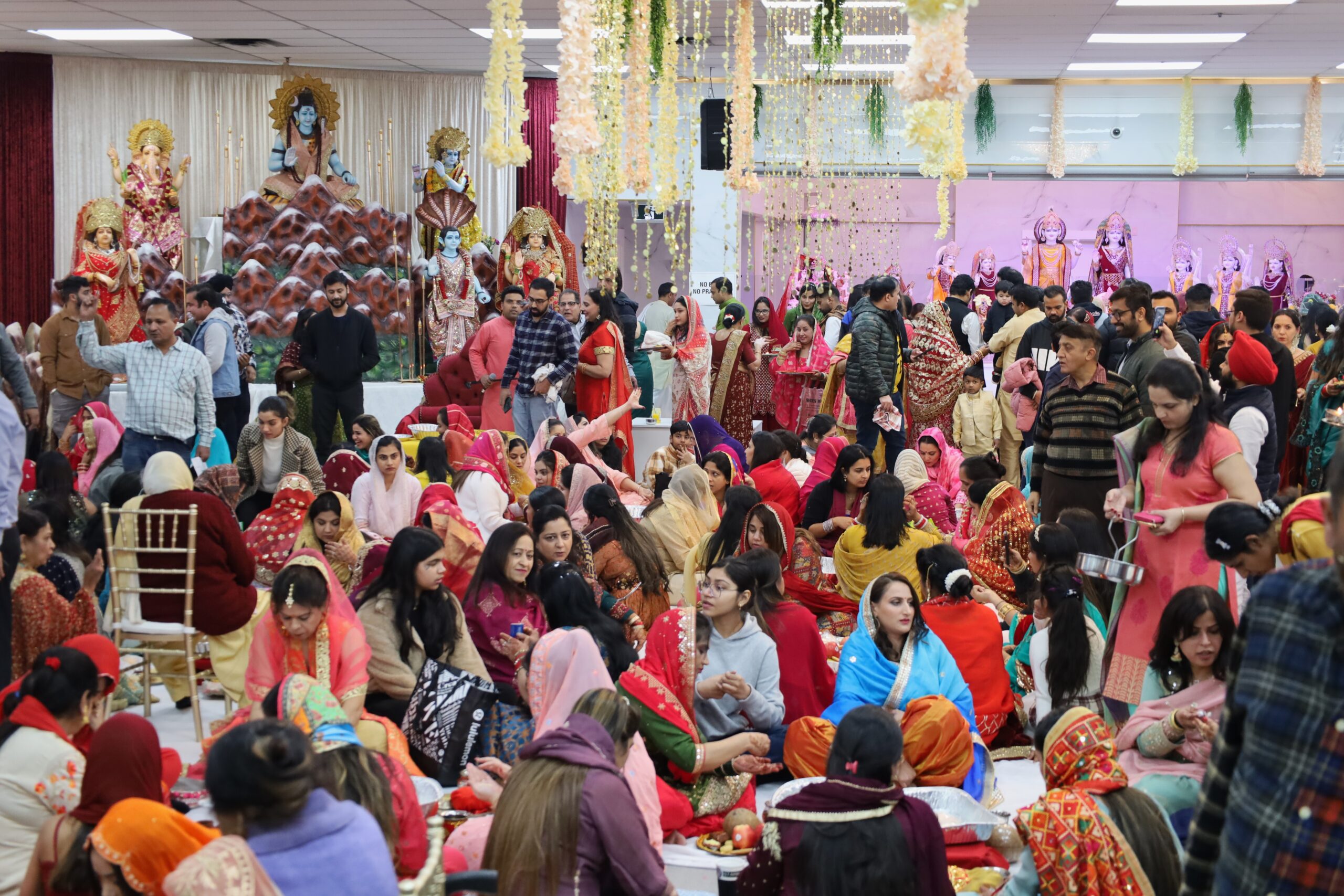
The temple hosts up to 15,000 people on festival days and up to 2,000 people on other days. During the recent Hindu celebrations on Navratri and Dussehra, Khalistani extremists blocked the entrance to the temple with their vans and chanted slogans in support of their cause.
“This hampered the devotees from entering the temple and created fear in the ones that were inside,” Sharma said.
He said Canadian Hindus are scared to visit their places of worship. The temple management, the temple official said, has received several calls from people who are wary of attending the festivities in person.
“There should be some reasonable limit to the freedom of speech in Canada — it is too flexible right now,” Sharma said. “Unless some authority figures from the government openly condemn such hate crimes, not just by Khalistanis but any other relevant groups, voices of people like mine mean nothing.”
On several occasions recently, India has accused Canada of harbouring terrorists working against India and failing to act against them. India says this gives Sikh gangs and pro-Khalistanis a free rein.
NCM spoke to Gurmeet Singh Toor, a committee member of the Guru Nanak Gurdwara, which hosted the last unofficial Khalistan referendum on Oct 27 in Surrey. He said over 200,000 people turned up to vote for an independent Sikh nation.
“I believe this act of people posting referendum posters on temple gates was done in good faith, to make the temple attendees aware of the upcoming referendum – to attend and vote. The media is sensationalizing it as a violent attack which it was never meant to be,” he says.
He adds that the same temple in Surrey that’s complaining was the venue for death threats and anti-Sikh slogans two years ago, but this went unreported. “Since the genocide against Sikhs in 1984 (in India) until the now, atrocities against Sikh brothers are not proportionately covered by the media. News channels and reporters don’t voice the concerns of Sikh citizens adequately. This inequality continues to be motivated by the (Indian Prime Minister Narendra) Modi government in 2023,” says Toor.
Jagmeet Singh, leader of the federal NDP, has said he condemns such violent acts, saying these conflicts within communities distract from larger goals such as tackling financial inequality and the high cost of living.
“There is ongoing systemic violence against minority communities in India, and their current government promotes divisive rhetoric on the basis of religion and caste, ” Singh said.
“In terms of the Indo-Canadian relationship, we feel that India has had a very abysmal human rights track record, and we’ve been long calling for a strong sanction from Canada and other international members to condemn that type of policy.”
The Khalistani group, Sikhs for Justice, has said they feel emboldened to be more vocal about their cause after the prime minister’s public statement alleging India had a hand in murdering Nijjar.
On Sept. 18, the group’s president, Gurpatwant Singh Pannun, posted a video threatening Hindus in Canada and asking them to return to India.
Another video has been posted on their social media channels warning Sikhs not to travel on Air India’s flights on Nov. 19 because they could be in danger.
Sukhi Bhathal, who immigrated almost 20 years ago and settled in B.C., said the rift in the community is upsetting.
“I remember how fun it was back in India. We always celebrated festivals as brothers — Hindus and Sikhs together,” Bhathal said.
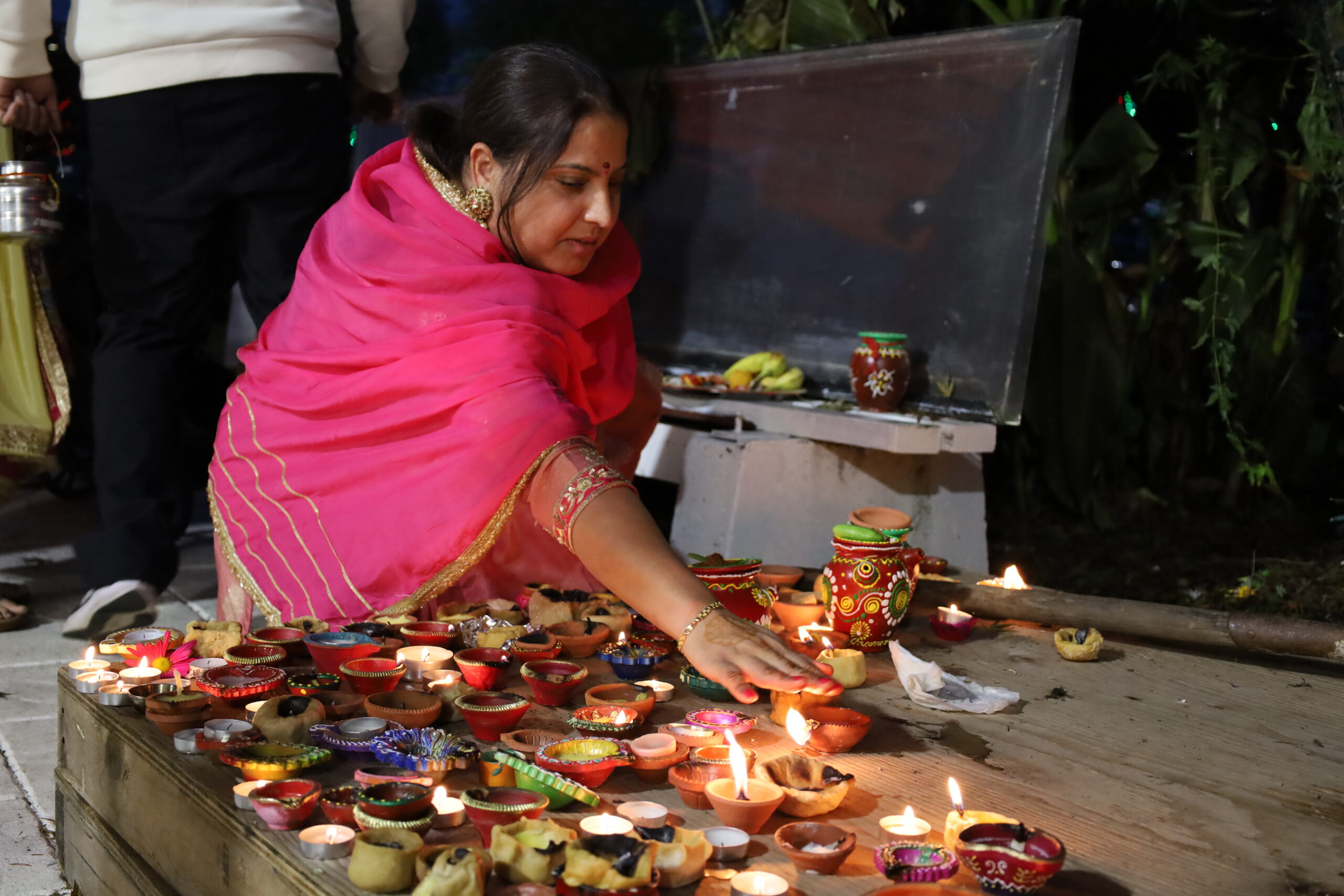
In Canada, November is celebrated as Hindu heritage month.
“We can help each other and not let these agendas divide us irreparably. We came here for a better life, to leave this mess behind,” Sharma said.
On Diwali weekend, Nov. 12, Hindu temples across Canada will continue to host their traditional rituals, light oil lamps and celebrate with firecrackers.
“Everyone is the same for me, they are blessed equally, and offered warm hand-cooked meals regardless of religion, caste, gender or color,” says Gaurav Kumar Ji, the priest of Lakshmi Narayana Temple in Surrey.
Radha Agarwal is a South Asian multimedia journalist, documentary photographer and filmmaker. She completed Concordia University's graduate diploma in visual journalism and a bachelor's degree in TV production from London, UK. Her work is focused on marginalized communities within topics like culture, gender and arts.

